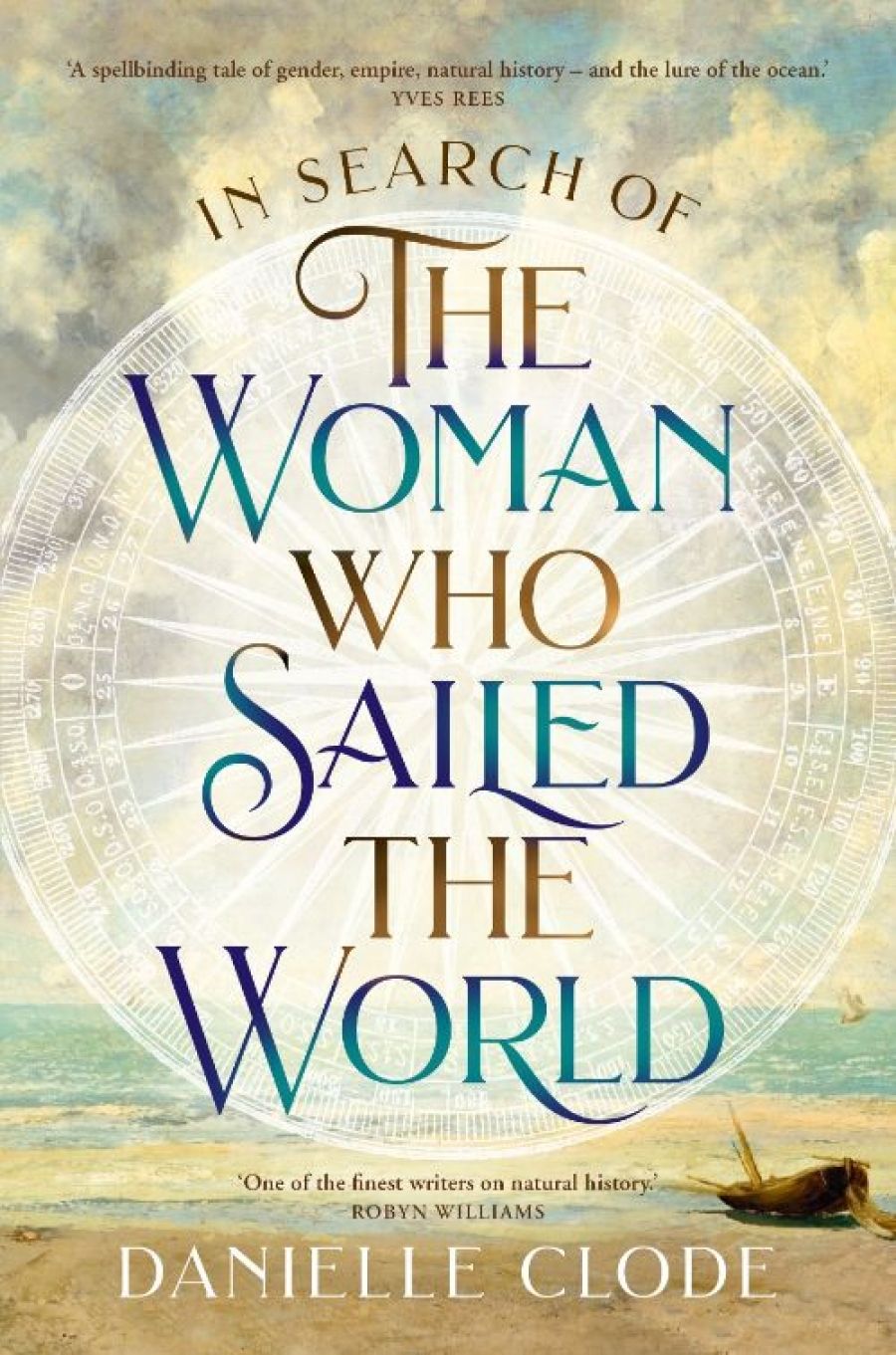
- Free Article: No
- Contents Category: Biography
- Review Article: Yes
- Article Title: Interest piqued
- Article Subtitle: Jeanne Barret, an obscure circumnavigator
- Online Only: No
- Custom Highlight Text:
One of the frustrating things about being a historian is the number of times you are told by others that surely everything in your specialty must already have been ‘done’. After so many decades or centuries, what more could there possibly be to discover? One of the answers is that what interests scholars, and what topics are considered worthy of examination, changes over time. This explains how ‘new’ material – often sitting in the archives for centuries – comes to light. It also explains why women have not always made the cut, a problem compounded, as recent Twitter discussions have highlighted, by how often research about women by female scholars still goes unpublished.
- Grid Image (300px * 250px):

- Book 1 Title: In Search of the Woman Who Sailed the World
- Book 1 Biblio: Picador, $34.99 pb, 335 pp
- Book 1 Readings Link: booktopia.kh4ffx.net/LAx5M
Clode has experience in rehabilitating the lives of remarkable women. ‘If we want to find a place for women in history,’ she writes, ‘then we have to start studying them.’ Her award-winning book, The Wasp and the Orchid (2018), reconstructed the life and career of forgotten Australian naturalist Edith Coleman. In the case of Barret, the author faces a more formidable task. What little we know of Barret’s momentous journey comes principally through the handful of men on the voyage who jotted a few notes about her in their journals, a record ‘both noisy and patchy’. To date, no writings of Barret’s own have been found – her signature the only certain evidence of at least some ability to write – and the sole record of Barret’s voice comes from Bougainville himself, who has her explaining that the idea of sailing around the world had ‘piqued her interest’.
 Jeanne Baret, 1816. From Navigazioni di Cook del grande oceano e intorno al globo, Volume 2, 1816, Sonzogono e Comp, Milano (State Library of NSW, FL3740703)
Jeanne Baret, 1816. From Navigazioni di Cook del grande oceano e intorno al globo, Volume 2, 1816, Sonzogono e Comp, Milano (State Library of NSW, FL3740703)
In France, authors of historical novels and bandes dessinées alike have filled the gaps with all the romance and adventure that Barret’s tale inspires. A 2010 biography by scholar Glynis Ridley sought to build a more complete account of Barret’s life by securing her within the cultural, social, political, and intellectual landscapes of the eighteenth century. Clode takes a different, quietly original approach, pausing at each puzzle or archival lacuna with meditations that span aspects of her childhood at sea, her knowledge and experience as a biologist, humankind’s desire to explore and conquer (often with little regard for environmental and human consequences), and the difficulties encountered in undertaking her research, about which she is admirably open.
The advantage of such an approach lies in Clode’s ability to imagine herself into the world of Barret and to take the reader there too, whether in her lyrical descriptions of marine life or her sensitive consideration of the ways in which Barret may have negotiated her situation both before and after her ruse was exposed. The book is also expertly plotted, threaded with the thrill and suspense of the archival chase. Yet Clode’s first-person interludes sometimes made this reader impatient for the next instalment of Barret’s story: we end by knowing almost as much about Clode as about her subject. What is sometimes missing is the expertise in certain historical contexts that would bring us closer to Barret herself, including the Enlightenment thought that both increased opportunities for women to contribute to scientific discovery and propelled voyages such as Bougainville’s, challenging the ways in which Europeans thought about the wider world.
Language also plays a role here. In the introduction, Clode hopes to ‘try to understand the real woman, as a product of her own times and environment’, her training as a biologist having shown her that ‘there is always something new to discover if you choose to examine things closely enough’. Two pages later she admits she ‘can barely read the road signs’ in France, and towards the book’s end, rues her decision ‘to research a topic where the resources are located half a world away in a language of which I have only the most rudimentary grasp’. As Clode repeatedly finds throughout her search, language matters, especially where gender is concerned. A greater familiarity with the language and nuances of her source material could have facilitated a sharper understanding of certain aspects of her subject’s life.
Commerson honoured Barret with the naming of a plant, Baretia bonafidia. It was not much of a memorial: its genus, as it turned out, already went by another name and Commerson’s nomenclature soon slipped from memory, much like Barret herself. After years of neglect, interest in Barret is nonetheless growing. A new French biography has just appeared, and new archival information has emerged in recent months about her date of birth and her life in Mauritius; it is unlikely to be long before she becomes the subject of a film. The details of Jeanne Barret’s life may still be sparse, but thanks to those Clode has resurrected and so intriguingly elaborated, her name is further on the way to becoming as well known as that which inspired the name of the bougainvillea specimen she herself probably gathered.


Comments powered by CComment